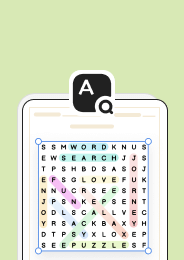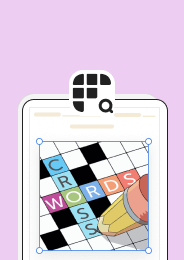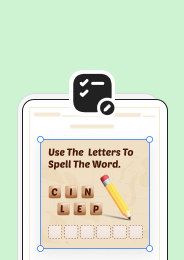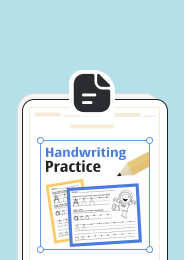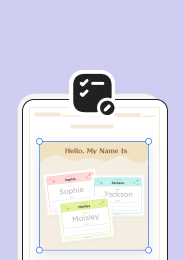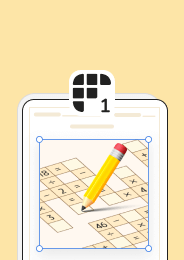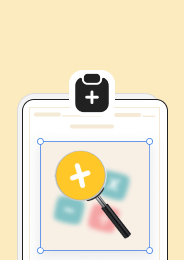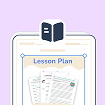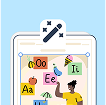Want to turn playtime into skill-building time? Fine motor skills activities for preschoolers strengthen hand muscles, improve coordination, and prepare kids for writing—all while keeping them engaged. That’s why we’ve gathered a big collection of fun, budget-friendly activities that seamlessly blend learning with play. Try these creative ideas and make fine motor development a natural part of your daily routine!
10+ fine motor skills activities for preschoolers
From squishy sensory play to precision-based crafts, these activities target finger strength, hand-eye coordination, and independence. Each idea uses low-cost materials and aligns with early learning standards.
1. Playdough Creations

Playdough is an excellent tool for strengthening little hands. As kids roll, pinch, and shape the dough, they enhance their fine motor control while exploring creativity.
Skill Developed: Hand strength and finger dexterity
How to Do:
- Provide different colored playdough and simple tools like rolling pins and cookie cutters.
- Encourage kids to create animals, letters, or patterns.
- Hide small objects inside the playdough and have kids dig them out to enhance finger strength.
2. Bead Threading

Bead stringing is an engaging and educational fine motor activity that helps young children improve their dexterity, focus, and problem-solving skills. As they carefully thread beads onto a string or pipe cleaner, they refine their pincer grasp and develop patience.
Skill Developed: Hand-eye coordination and precision
How to Do:
- Use large wooden beads for beginners and gradually transition to smaller ones.
- Provide pipe cleaners or shoelaces as threading materials.
- Encourage kids to make themed necklaces with color or shape patterns.
3. Cutting Practice with Scissors

Download this printable Cutting Practice worksheet for your kids now!
Cutting with scissors is an important skill that builds hand strength, coordination, and precision. While it may seem challenging at first, practicing scissor skills helps children develop better control over their hand movements, preparing them for writing and other fine motor tasks.
Skill Developed: Bilateral coordination and scissor control
How to Do:
- Provide child-safe scissors and strips of construction paper.
- Start with simple cuts before advancing to zigzags and curves.
- Encourage creative projects like paper snowflakes or fringe designs.
More cutting practice worksheets here.
4. Clothespin Challenge

Using clothespins in play-based activities is a simple yet effective way to strengthen the pincer grasp, which is crucial for writing and buttoning clothes. By squeezing the clothespins open and clipping them onto different objects, kids develop finger strength and coordination while having fun.
Skill Developed: Pincer grasp and finger strength
How to Do:
- Have kids clip clothespins onto a rope or paper plate.
- Play a sorting game where they match clothespins to colored dots.
- Create a game where kids “feed” a cardboard animal using clothespins.
5. Tongs & Tweezers Fun

Using tongs or tweezers to pick up small objects is a fantastic way to refine finger strength and precision. This activity mimics everyday movements like using chopsticks or grasping small items, making it highly beneficial for preschoolers.
Skill Developed: Grip strength and precision
How to Do:
- Set up a tray with pom-poms and plastic tweezers.
- Challenge kids to transfer objects between cups.
- Add a timer for an exciting “race against the clock.”
6. Water Play with Pipettes

Water play with pipettes is a fascinating and mess-free way for kids to develop their fine motor skills. This activity encourages precision as they carefully squeeze and release the pipette, strengthening the small muscles in their fingers.
Skill Developed: Pincer grasp and control
How to Do:
- Provide colored water and pipettes.
- Let kids transfer water between cups or onto coffee filters for a watercolor effect.
- Use small test tubes to create a fun “science experiment.”
7. Sticker Peeling & Placement

Peeling and placing stickers is an enjoyable way to strengthen finger control and hand-eye coordination. The small movements required to grasp and position stickers help refine fine motor skills in a playful manner.
Skill Developed: Precision and visual tracking
How to Do:
- Provide various sticker sheets and encourage free-form art.
- Create a matching game where kids place stickers on corresponding shapes.
- Tape stickers to a surface and have kids peel them off for a “rescue mission.”
8. Lacing Cards

Skill Developed: Bilateral coordination and focus
How to Do:
- Use pre-made lacing cards or make your own from cardboard.
- Provide shoelaces or pipe cleaners for threading.
- Encourage kids to follow patterns or outlines.
9. Puzzle Fun

Puzzles are an excellent way to refine fine motor skills while engaging children’s cognitive abilities. Manipulating puzzle pieces strengthens grip and coordination, while the process of matching shapes helps improve spatial awareness and problem-solving skills.
Skill Developed: Problem-solving, spatial awareness, grip strength
How to Do:
- Start with large-piece puzzles for younger children and progress to smaller, more complex ones.
- Use wooden puzzles, foam puzzles, or simple jigsaw puzzles with themes kids enjoy (animals, letters, numbers).
- Offer guidance but allow children to explore and solve puzzles independently.
- Encourage teamwork by having kids work on puzzles together.
10. Sand and Scoop Play

Playing with sand is not just a fun outdoor activity—it also strengthens hand muscles and promotes sensory exploration. Digging, scooping, and sifting sand requires children to use their fingers and hands in precise ways, helping develop control and dexterity.
Skill Developed: Hand-eye coordination, sensory exploration, grip strength
How to Do:
- Fill a large container with play sand or kinetic sand.
- Provide tools such as measuring cups, scoops, or small shovels for digging and transferring.
- Hide small toys or objects in the sand for kids to discover.
- Encourage them to build simple sand structures to boost creativity.
11. Finger Painting Fun

The act of spreading, smearing, and mixing paint helps children refine their grip and coordination while experiencing different textures. It also provides an opportunity for early literacy development when children “write” with their fingers in the paint.
Skill Developed: Tactile exploration, creativity, hand strength
How to Do:
- Set up a mess-friendly painting station with washable, non-toxic paints.
- Encourage children to use their fingers to make shapes, letters, or patterns.
- Introduce different tools like sponges or cotton swabs to vary textures.
- Add glitter, sand, or salt to the paint to create a more textured experience.
12. Block Building Challenge

Building with blocks is a fundamental activity that enhances fine motor skills while fostering problem-solving abilities. Grasping and stacking blocks require controlled movements, improving precision and coordination. This activity also strengthens grip muscles, which are essential for future writing and drawing skills.
Skill Developed: Grip strength, spatial awareness, hand-eye coordination
How to Do:
- Provide various types of blocks (wooden, plastic, magnetic).
- Encourage kids to build towers, bridges, or themed structures.
- Challenge them to stack blocks as high as possible without them falling.
- Use blocks to form letters or numbers, reinforcing early literacy and math concepts.
Final thoughts
Developing fine motor skills activities for preschoolers is essential for preparing them for writing, self-care, and daily tasks. These hands-on activities not only strengthen muscles but also make learning fun! Try incorporating these engaging exercises into your classroom routine and watch your little learners thrive.


